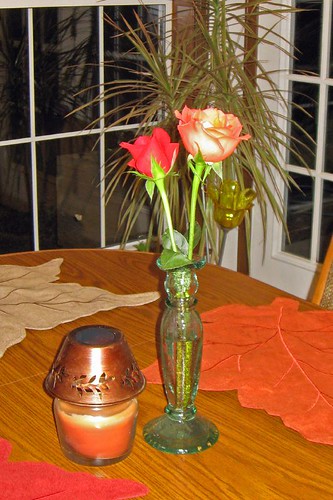My An Arkie's Faith column from the October 19, 2016, issue of The Mena Star
Recently I had one of those experiences at work that you just never want to have. After working on a customer’s vehicle, I moved it from my work area to our parking lot. I was in a hurry to start the next job. As I was working, I heard a thud! I looked up and saw that the vehicle I had recently moved had rolled back against another car.
I ran over to see what had happened. The left front fender of the vehicle was damaged where it had run into the rear bumper of another car. When I had shifted the vehicle into park, it didn’t stay, and when the transmission slipped out of park, the vehicle rolled back. My heart sank as I looked at the damage. I wasn’t looking forward to telling the customer that I had damaged his truck.
When the customer arrived at my shop, I immediately told him that I had something I needed to show him. I showed him the damage and told him that we would do whatever he wanted us to do to take care of the issue. He looked at the damage to his fender and said, “that doesn’t look too bad, and my truck is old, don’t worry about it.” He continued, “It was an accident, and I wouldn’t want that to have happened to me.” I told him that I wasn’t comfortable with doing nothing. We agreed on a monetary amount to pay for the damage. I told him that I appreciated how understanding he was about the incident. He told me that he wanted to treat me the same way he would want to be treated if it had happened to him.

In Christianity, we refer to this concept as “The Golden Rule.” If you ask someone to repeat ”The Golden Rule,” they will usually say, “do unto others as you would have them do unto you.” There is no place in the Bible that uses exactly this phrase, but in Matthew 7:12 (NKJV), Jesus said, “Therefore, whatever you want men to do to you, do also to them, for this is the Law and the Prophets.” And in Luke 6:31 (NKJV) we read, “and just as you want men to do to you, you also do to them likewise.”
Most Christians truly believe this. But there’s one area of life where it seems that Christians forget the golden rule, and that’s politics. I’m amazed by how many Christians become completely uncivil when it comes to discussing politics. In everything else they are polite but once they start talking about politics or politicians they become vicious. It seems that they forget that the Bible says in Romans 12:10 (NLT), “Love each other with genuine affection, and take delight in honoring each other.”
Many devout Christians become mean, critical, and bitter when they talk about politics. Insults, name-calling, bitterness, and slander are the order of the day. They don’t seem to remember that the Jesus they claim to worship said to “love your enemies, do good to those who hate you, bless those who curse you, pray for those who mistreat you.” Luke 6:27,28 (NIV)
I think that social media is partly to blame. People post things they might never say. I don’t believe that Christians shouldn't have opinions on politics or that they shouldn't express them. I’m very grateful that I live in a country where free speech is a basic human right. I’m happy that there are Christians who care about their country and involve themselves in the political process.
But does it have to be so full of hate? It is all right for a Christian to express an opinion on politics such as, “I think X is a poor President, Senator, Congresswoman, Candidate.” But we have all seen some Christians cross the line from opinion to attack, insult, and slander. Much of it is hateful and malicious.
When I look at the Facebook posts of some Christians, I ask myself if they have ever read Colossians 4:6 (NKJV) “Let your speech always be with grace, seasoned with salt, that you may know how you ought to answer each one.”
In Matthew 12:34 (ICB) Jesus said, “The mouth speaks the things that are in the heart.” We as Christians can’t escape the reality that our words, or social media posts, reveal our true character. In Matthew 12:37 (NLT) Jesus said, “the words you say will either acquit you or condemn you.” I have never read in the Bible where Jesus said, “But when it comes to politics and politicians, feel free to be as mean, vile and ugly as you want.”
When Christians say ugly words or post thoughts or pictures about people they disagree with to support their political position, they are talking about people that Jesus loves and died for. There is a real person behind those words. They are saying that about real people, not just ideologies, not just platforms, not just issues, not just politicians.
Gentle Reader, I’m sure that there is a way for Christians to engage in the political process and political discussions while still manifesting the Spirit of Jesus. If Christians consistently showed the Spirit of Jesus in their political discussions instead of being mean or harsh, it would be a powerful witness. Before you talk or post on social media, ask yourself if you would want to be talked about that way. Remember the golden rule.


















































